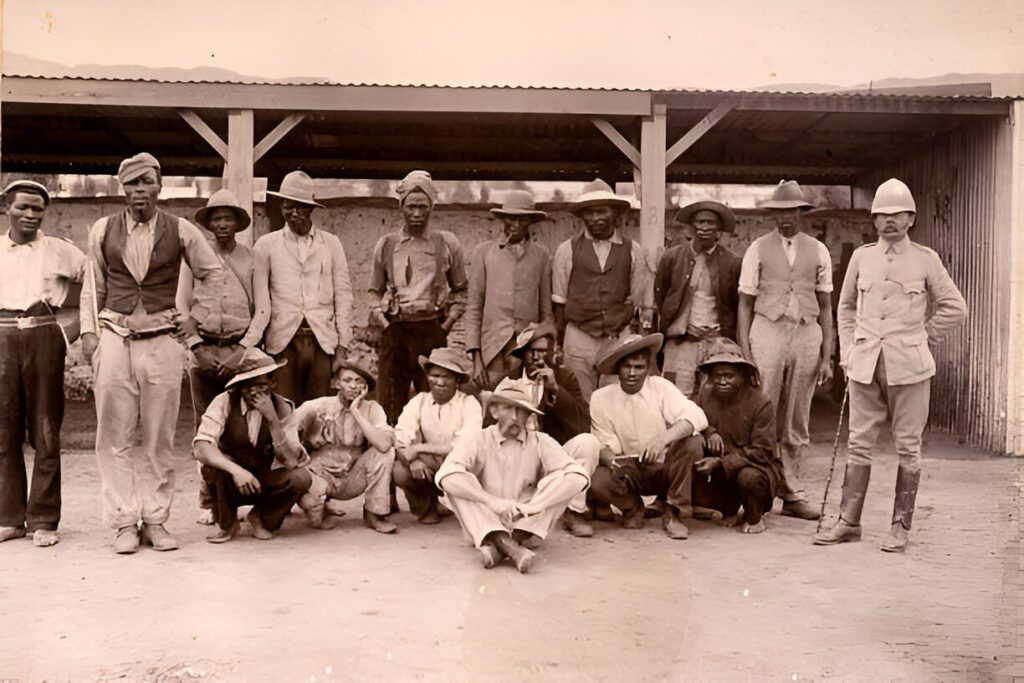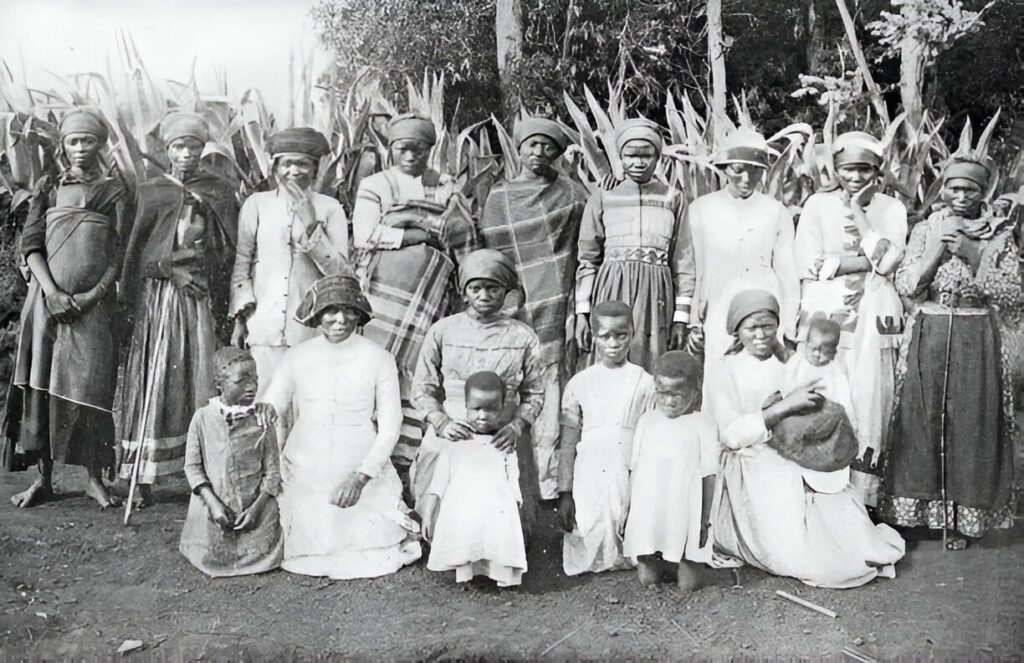For centuries, Africa has been a continent of great interest to the Western world, especially Europeans. From the age of exploration in the 15th century to the postcolonial era, the relationship between the Whites and Africa has been complex, oscillating between claims of development assistance and accusations of exploitation.
This article delves into the historical and contemporary dynamics of these visits, examining whether they have contributed to Africa’s development or have been predominantly exploitative.
Historical Context

The relationship between Africa and European countries began to take shape in the mid-15th century during the Age of Exploration. European explorers arrived on African shores for various reasons, including trade, the search for new markets, and expanding their empires. The Portuguese were among the first to explore West Africa, followed by the British, French, Dutch, and others. The initial contacts were largely trade-oriented, with Africans and Europeans exchanging goods such as gold, spices, and later slaves.
Colonization and Exploitation
The most infamous chapter in the history of Western involvement in Africa is the period of colonization, beginning in the late 19th century during the “Scramble for Africa.” This period witnessed European powers dividing Africa among themselves, with little regard for the ethnic, cultural, or political complexities of the continent. The Berlin Conference of 1884–1885 saw European nations carve up Africa into colonies, with the aim of extracting its wealth and resources for the benefit of Europe. This marked the start of one of the most exploitative eras in African history.
Economic Exploitation
Africa was rich in natural resources such as gold, diamonds, rubber, and later oil. These resources attracted European powers eager to bolster their industrial economies. Africans, who had been living in largely agrarian societies, were often forced into labor systems that prioritized European interests. Forced labor, taxation, and land dispossession were common tools of exploitation. For example, in the Congo Free State, under the rule of Belgium’s King Leopold II, the extraction of rubber and ivory came at the cost of millions of African lives, showcasing the severe human rights abuses linked to European imperialism.
The Transatlantic Slave Trade
Between the 16th and 19th centuries, the transatlantic slave trade became a dark symbol of European exploitation in Africa. An estimated 12 to 15 million Africans were forcibly taken from their homeland, enslaved, and transported to the Americas. The legacy of the slave trade left deep scars on African societies, with entire generations lost and the continent’s social, economic, and political structures destabilized. The economic and labor systems in Africa were severely disrupted as the healthiest and most productive members of the population were shipped abroad.
Development Claims and Benefits
Despite these undeniable instances of exploitation, some argue that European influence also brought about elements of development in Africa. This claim is more contentious, with critics noting that any development was often incidental or secondary to the primary goal of resource extraction and dominance. Nonetheless, there were certain areas where Western involvement did lead to advancements.
Infrastructure Development
During the colonial era, European powers built extensive infrastructure, including railroads, roads, and ports. These projects were often designed to facilitate the extraction of resources and to strengthen colonial governance. While the primary purpose was to serve European interests, Africans have since benefited from these infrastructures in post-colonial societies. Railways like the ones built in Kenya and South Africa still play a crucial role in commerce and transportation today.
Educational Systems
The introduction of Western education to Africa is another area where development claims are made. Missionaries and colonial governments established schools, and European educational curricula were introduced to various African regions. This led to the emergence of an educated African elite who would later lead many independence movements. However, education under colonial rule was often restricted to a small segment of society, and the primary aim was to train Africans for subordinate roles in the colonial administration or the church.
Healthcare Improvements
Westerners introduced modern medicine and healthcare systems to various parts of Africa. Missionary hospitals and colonial health services helped combat diseases such as smallpox and malaria, although access to these services was uneven, often favoring Europeans or Africans serving colonial interests. Nevertheless, the foundation of healthcare infrastructure was established, and many post-colonial African nations have since expanded on these systems.
The Post-Colonial Legacy
When most African nations gained independence in the mid-20th century, they inherited economies that were underdeveloped and structured to serve European markets. While colonialism officially ended, Western involvement in Africa did not. This period marked the beginning of what some refer to as “neo-colonialism,” where Western powers continued to exert influence over African economies and politics through aid, loans, and foreign direct investment.
Economic Exploitation Through Debt
Many African countries became heavily dependent on loans and financial aid from the West and international financial institutions like the International Monetary Fund (IMF) and the World Bank. While these loans were intended to promote development, they often came with stringent conditions that led to structural adjustment programs. These programs frequently demanded the privatization of state-owned industries, reductions in public spending, and the opening of markets to Western companies, often resulting in economic instability and increased poverty.
Resource Exploitation Continues
Even in the post-colonial era, Western countries and corporations have maintained a strong interest in Africa’s natural resources. Oil, minerals, and other valuable commodities continue to be extracted and exported, often with little benefit to local populations. Multinational corporations frequently sign deals with African governments that provide minimal revenue to the country in comparison to the wealth generated abroad.
Current Dynamics: Aid or Exploitation?

In contemporary times, the involvement of Western countries in Africa has shifted from direct colonialism to international aid, trade, and development assistance. However, the debate remains: is this involvement genuinely aimed at fostering development, or is it another form of exploitation?
Humanitarian Aid and Development Programs
Many Western countries and organizations have contributed billions of dollars in humanitarian aid to African nations, particularly during times of crisis, such as famines, epidemics, and conflicts. Additionally, international development programs aimed at improving education, healthcare, and infrastructure have been implemented across the continent. Agencies such as the United States Agency for International Development (USAID) and the United Nations have funded projects designed to alleviate poverty, improve health outcomes, and promote democratic governance.
Neo-Colonialism Allegations
Despite these efforts, there are accusations that international aid is often used as a tool for political influence, with Western governments leveraging their financial support to control African political decisions. Some African leaders and scholars argue that the terms of aid and loans often benefit donor countries more than the recipients. Foreign direct investment in industries such as mining and oil extraction continues to be dominated by Western corporations, further fueling arguments that Africa is still being exploited economically.
Conclusion: A Dual Narrative
The history of Whites’ visits to Africa presents a dual narrative of exploitation and development. On the one hand, the impact of European colonization and Western exploitation has left lasting scars on the continent, from the slave trade to economic resource extraction. On the other hand, certain aspects of Western involvement, such as infrastructure, education, and healthcare, have contributed to Africa’s development, albeit in a limited and often self-serving way.
In the post-colonial era, Western influence continues through aid, trade, and investment, with ongoing debates over whether this represents a new form of exploitation or genuine efforts to promote development. Ultimately, the relationship between Africa and the West remains complex, with both positive and negative legacies shaping the future of the continent. Africa’s development trajectory will depend largely on how it navigates these external influences and strengthens its own internal capacities.